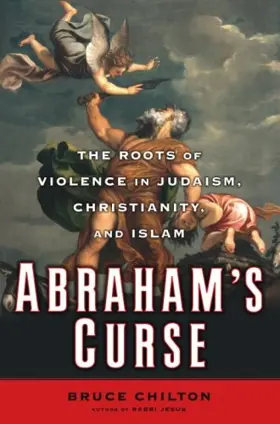

Abraham's Curse: The Roots of Violence in Judaism, Christianity, and Islam
Pages
272
Publisher
Doubleday
Published
2/19/2008
ISBN-13
9780385520270
When they arrived at the place which God had indicated to him, Abraham built
an altar there, and arranged the wood. Then he bound his son and put him on
the altar on top of the wood. Abraham stretched out his hand and took the
knife to kill his son . . .” —The Book of Genesis
Reviews
Claremont School of Theology and Claremont Graduate University Claremont, California Chilton’s study is motivated in part by his experience as an Episcopal priest giving last rites to a young woman murdered in 1998. The killer successfully pleaded insanity based on his claim that he acted on the basis of a divine voice identified with the Afro-Caribbean god Ogun (and drug use), who demanded a sacrificial victim to release vital forces. His study is also motivated by the examples of Mohamed Atta, one of the key figures in the 9/11 attacks; Timothy McVeigh, who bombed the Oklahoma City Federal Building; and Yigal Amir, who murdered Israeli Prime Minister Yitzhak Rabin, each of whom was willing to shed the blood of others and die themselves as self-perceived martyrs in order to serve their respective understandings of the divine will. Chilton argues that the acts of Atta, McVeigh, and Amir are each rooted in the image of martyrdom derived from the Aqedah, the binding of Isaac (Gen 22), as it is understood in Islam, Christianity, and Judaism. He states on page 6 the purpose of his book, “By examining the Aqedah and how it has been developed and deployed within the Abrahamic religions, and the enormous impact it has had on the way we think and feel, I hope to lay bare the sacrificial roots of violence and the driving force behind martyrdom.” Chilton fears that the conceptualization of G-d in the so-called Abrahamic religions exposes G-d “as a cruel tyrant whose bloodlust trumps any promises he [sic] might make” (7).
[Full Review]
